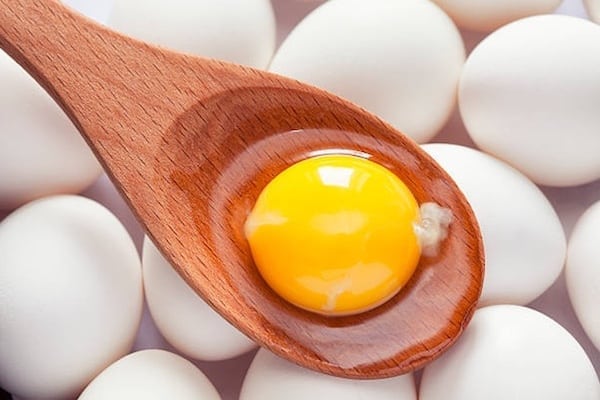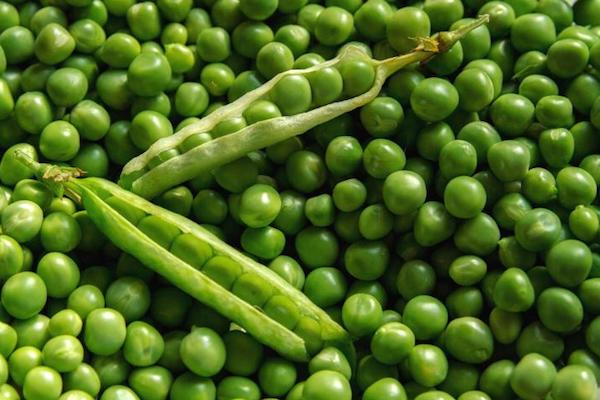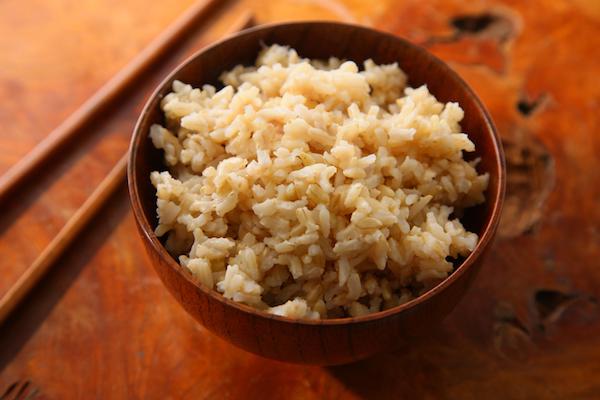No products in the cart.
Zinc for Bodybuilding: 25 Foods High in Zinc

Why is zinc so important for bodybuilders? In the following article we will look at what zinc is, what benefits it offers as well as the signs that you are not getting enough of this mineral.
We will also look at some foods high in zinc, to ensure you have plenty of choice of foods to choose from when looking to boost your intake.[toc]
What is Zinc?
Zinc is a trace element and essential mineral that our bodies cannot synthesise naturally. What this means is that although our bodies need it, we cannot produce it, we must get it from other sources.
For example:
- Food
- Drink
- Supplements
Zinc plays an important role within your body, and is essential for your immune system. It can also help with wound healing, can help promote the natural production of testosterone and boost protein synthesis.
It is recommended that males should try to consume 11 mg daily, with women recommended to consume 8 mg [1].
For those that train often then it is recommended that you increase this daily amount.
Why Do Bodybuilders Need Zinc?

There are many benefits to be gained from consuming zinc, but it is more important for those that train regularly that their intake of zinc is above average.
There are 2 main reasons why you probably need to increase your zinc intake:
- Minerals like zinc can help support recovery from training, and are also essential for your overall health.
- When you train, you will lose minerals like zinc through your sweat. It is important that you replace these lost minerals to avoid any deficit.
Benefits of Zinc
Zinc offers numerous health benefits, but as this article is focussed more on bodybuilders we will look at the benefits they can gain from zinc.
Zinc Enhances Athletic Performance
Theres a good reason why bodybuilders and athletes use zinc supplements daily, and that is because zinc can enhance athletic performance.
Zinc can help promote the release of hormones like Insulin-Like Growth Factor (IGF-1), Growth Hormone and Testosterone. Each of these hormones can play a key role in building muscle and performance.
Zinc Increases Testosterone Production
Zinc can help boost testosterone levels, which will result in a boost in athletic performance, muscle and strength gains, as well as a host of sexual benefits too.
One study [2] found that men that were given 30 mg of zinc daily had increase levels of free testosterone.
Zinc Boosts Your Immune System
Zinc is important for your immune system, which is your first and last line of defence against illness.
The stronger your immune system, usually the fitter and healthier you will be.
A good immune system will better equip you to fight common illnesses like colds and flu. It can also better protect you against more serious issues like cancer.
Zinc Increases Strength and Muscle Mass
As zinc helps to increase testosterone, and a host of other hormones this will have an impact on your ability to build strength and muscle.
Not only will you be able to function more efficiently while at the gym, allowing you to workout at maximum intensity, but you will be able to recover quicker too.
This faster recovery will help you workout more often.
Zinc Improves Insulin Sensitivity
By improving insulin sensitivity you will be better able to maintain your weight. It is also important for preventing type 2 diabetes.
Zinc is a Powerful Antioxidant
Antioxidants can help promote cell health, while also helping to rid your body of toxins and free radicals.
As your overall health improves so will your fitness.
Zinc Boosts Energy
Zinc can help facilitate the conversion of energy from food into energy you can use while working out.
Research has shown that a lack of zinc can cause a reduction in endurance, muscle strength and cardiorespiratory function [3].
Zinc Promotes Good Sleep
Zinc helps to promote the production of melatonin.
Melatonin is known as the sleep hormone, which will promote a good nights rest. This is important as rest will help you recover from your training.
You should aim to get at least 7 hours of good quality sleep every night.
Zinc Helps With Focus
Zinc helps to regulate the production of the neurotransmitter dopamine, which will help your brain focus. It also helps to enhance drive and mental clarity.
Being focussed at the gym will ensure you put in 100% effort, and will ensure you do not go through the motions while working out.
Signs You Are Not Getting Enough Zinc?

The following are signs that you are not getting enough zinc in your diet [4]:
- Poor immunity – If you regularly catch colds or suffer from infections.
- Higher risk of allergies – Zinc blocks the release of histamine, which can prevent rashes and sneezing.
- Lack of sleep – Zinc helps regulate melatonin, which is the sleep hormone that ensures you get a good nights rest.
- Hair loss – A lack of zinc can result in hair loss.
- Poor skin health – Studies have shown that a lack of zinc may contribute to acne.
If you are a bodybuilder, or just someone who trains regularly then you should aim to consume at least 30 mg of zinc on a daily basis.
Top 25 Foods High in Zinc
The following foods are rich in zinc, make sure you add these to your daily diet:
#1: Oysters
A 50 gram serving of oysters contain 8.3 mg of zinc. They are also a good source of protein and vitamin C, which is another vitamin good for your immune system.
#2: Sesame Seeds
As well as containing 7.8 mg of zinc in a 100 gram serving. Sesame seeds also contain phytosterols that can lower cholesterol.
Sesamin is another compound found in sesame seeds. This compound can help boost your overall health.
#3: Flax Seeds
A rich source of zinc, with 7.3 mg found in a 168 gram serving.
Flax seeds also contain omega-3 fatty acids that can boost both heart and brain health.
#4: Pumpkin Seeds

Pumpkin seeds contain 6.6 mg of zinc in a 64 gram serving. It is also a good source of antioxidants.
#5: Oats
With 6.2 mg of zinc in a 156 gram serving, oats are a good breakfast choice when looking to increase your zinc intake.
Oats also contain beta-glucan, which is a soluble fibre that can help to regulate your cholesterol levels and help good bacteria to grow in your gut.
#6: Cocoa Powder
An 86 gram serving contains 5.9 mg of zinc.
Cocoa powder is also a rich source of flavonoids that can boost your immune system.
#7: Swiss Cheese
A good source of calcium, which is essential for bone strength, protein and amino acids.
Swiss cheese also contains 5.8 mg of zinc in a 132 gram serving.
#8: Egg Yolk

As well as containing a good amount of zinc (5.6 mg in a 243 gram serving), egg yolks are also rich in omega-3 fatty acids.
It also contains the antioxidants lutein and zeaxanthin, which are important for good vision.
#9: Lima Beans
With 5 mg of zinc in a 178 gram serving, you should consider adding lima beans to your shopping list.
These beans are also rich in B vitamins, and the fibre it contains can help fight against colon and digestive cancers.
#10: Kidney Beans
They contain 5.1 mg of zinc in a 184 gram serving.
#11: Peanuts
Peanuts are a good source of zinc with 4.8 mg found in a 146 gram serving.
They are also a host to numerous heart-healthy nutrients that include niacin, magnesium, copper and oleic acid.
#12: Lamb
A good source of high-quality protein, lamb is also a good source of zinc (3.9 mg in a 113 gram serving).
Lamb also contains beta-alanine that improves physical performance, so perhaps worth adding to your diet just for that benefit alone [5].
#13: Almonds

Almonds are full of antioxidants that can relieve stress and slow down ageing. It also contains vitamin E that helps to protect your brain against degenerative diseases like Alzheimers.
A 95 gram serving of almonds contains 2.9 mg of zinc.
#14: Crab
A complete protein that also contains an impressive amount of vitamin B12, a vitamin that helps produce healthy blood cells, while also helping to prevent heart disease.
The zinc content is 3.1 mg in a 85 gram serving.
#15: Chickpeas
Chickpeas are a good source of fibre, therefore can help to regulate your blood sugar and cholesterol levels. This is important to help prevent diabetes and heart disease.
Selenium, is another mineral found in chickpeas. It helps to remove certain cancer-causing compounds from your body.
The zinc content of chickpeas is 2.5 mg in a 164 gram serving.
#16: Peas

A 160 gram serving of peas contains 1.9 mg of zinc.
#17: Cashews
They contain 1.6 grams in a 28 gram serving.
Cashews are also a good source of both iron and copper, which helps to enhance blood circulation.
The mono and polyunsaturated fats found in cashews help to reduce the build up of fat and cholesterol in your heart.
#18: Garlic
You will find 1.6 mg of zinc in a 136 gram serving of garlic.
Other benefits you can gain from increasing your intake of garlic is the improvement of both blood pressure and cholesterol levels.
#19: Yoghurt
The zinc content of yoghurt is 1.4 mg in a 245 gram serving.
It is also a good source of calcium, for bone health and protein.
#20: Brown Rice

Cooked brown rice contains 1.2 mg of zinc in a 195 gram serving.
You will also find manganese aplenty within this food, which will help to strengthen your immune system.
Other benefits experienced include the regulation of your blood sugar levels.
#21: Grass-Fed Beef
The zinc content is 1.3 mg in a 28 gram serving.
You should opt for grass-fed over other variants as its overall fat content is lower, but the heart-healthy omega-3 fatty acids will be higher.
Grass-fed beef is also a good source of Conjugated Linoleic Acid or CLA, which has been shown to reduce the risk of developing certain cancers and heart disease.
#22: Chicken
One of your go-to foods for protein is also a good source of zinc, with 0.8 mg found in a 41 gram serving.
Chicken also contains the cancer fighting nutrient selenium, as well as vitamins B6 and B3 that can enhance your metabolism.
#23: Turkey
Another rich source of protein. Like chicken, turkey also contains selenium.
Its zinc content is 0.4 mg in every 33 gram serving.
#24: Mushrooms

The zinc content of mushrooms is 0.4 mg in a 70 gram serving.
Mushrooms are a good source of germanium, which is a nutrient that has been shown to help your body utilise oxygen effectively.
They are also a good source of iron as well as vitamins C and D.
#25: Spinach
Our final zinc-rich food is spinach, which contains 0.2 mg in every 30 gram serving.
Spinach is also rich in antioxidants like alpha-lipoic acid that can help lower glucose levels, while preventing oxidative stress.
It is also a good source of vitamin K, which is essential for bone health.
Final Thoughts
As well as getting zinc from your diet there are also zinc supplements available. It is always advisable to check with your doctor before you start using any supplement.
While zinc offers various benefits, including muscle and strength gains, you also need to understand there are other aspects required to experience these gains.
Regular intense training would be a good start, alongside a diet rich in protein. Plenty of sleep is also recommended to aid recovery.
Finally, you may want to check out some proven muscle builders. You can review some of our choices here.
